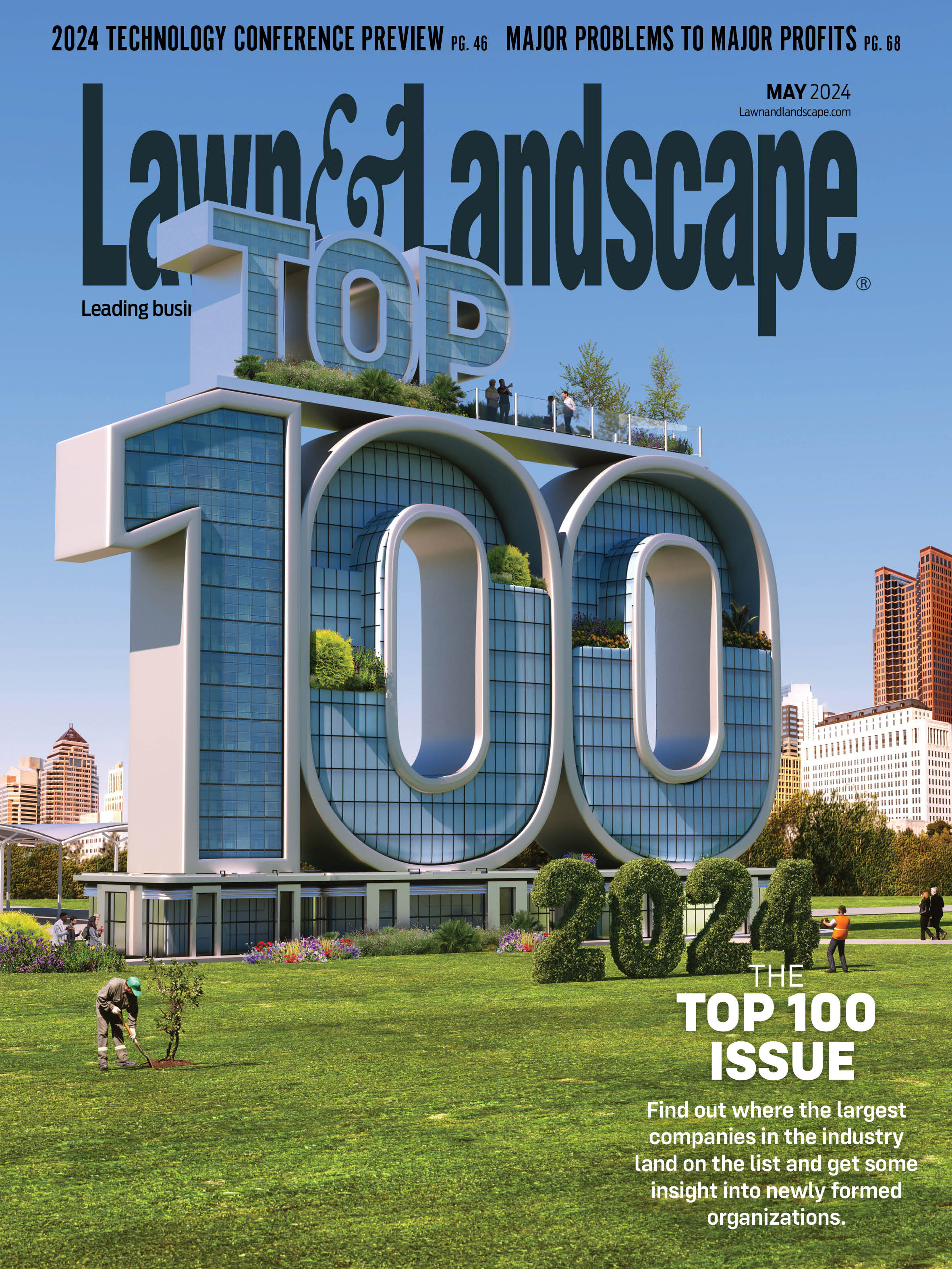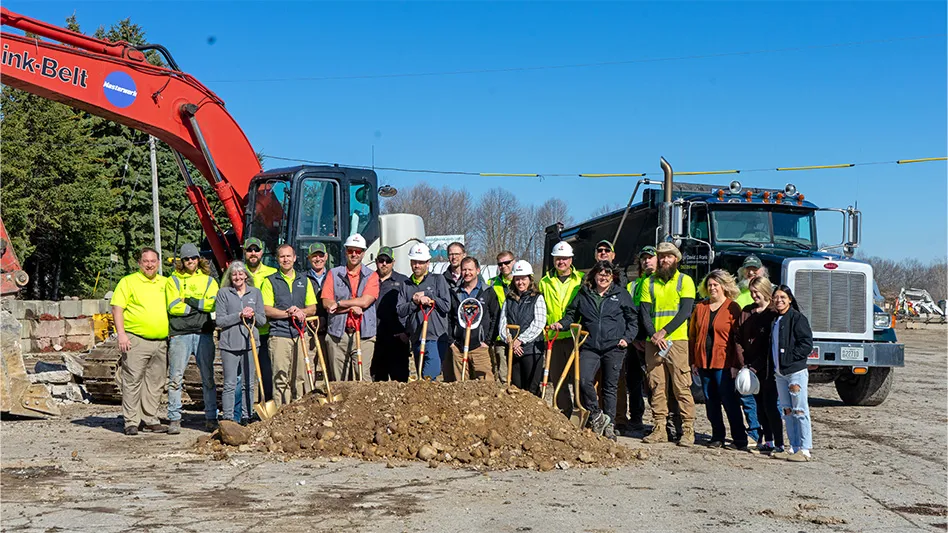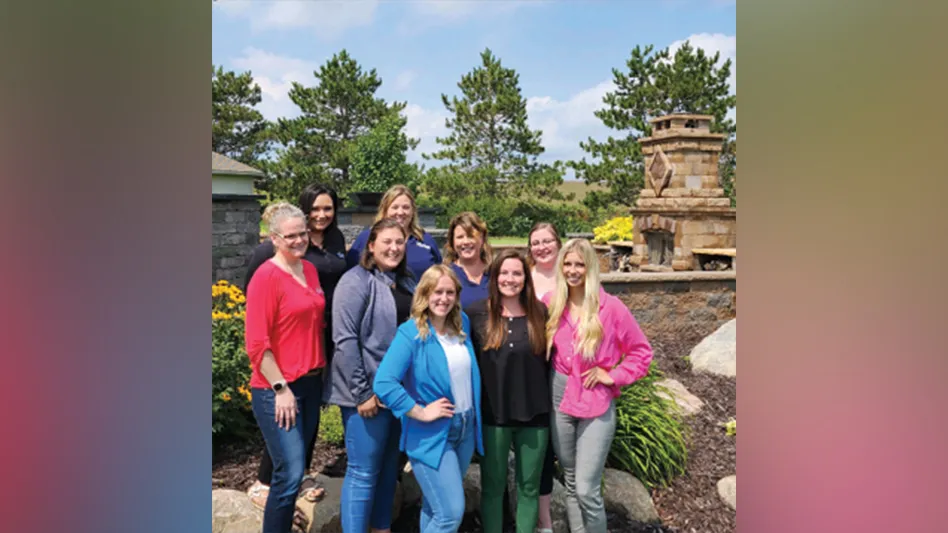

The Lawn & Landscape Technology Conference is in its fifth year and will take place July 23-25 at the Signia Hotel in Atlanta. We caught up with some of the panelists and speakers to get a preview of the show, their thoughts on artificial intelligence and what future trends they have their eyes on for the future. Visit bitly.com/LLtechconference to learn more.
What is one piece of knowledge you want someone to come away with after listening to your presentation?

of respective speakers
Aaron Thomas, CEO, Don’s Lawn: It is absolutely imperative to leverage technology in order to automate as many processes as possible. In 5-10 years, it will be very hard to compete in any sizable market without fully embracing the shifting technology landscape. Providing great service at a great price will only be possible for those who lean into the full utilization of technology. Because your competitors will be using technology to dramatically slash their costs, so the only way to keep up is by doing the same.

Robyn Schmitz, owner/CEO, High Prairie Outdoors: Progress over perfection. Have a clear plan and be willing to adapt as you learn more. Technology requires adaptation because technology is always adapting.

Natalie Shaw, director of business intelligence, Heartland: Attendees will gain a practical roadmap for harnessing the power of real-time analytics in operational reporting, regardless of their company’s stage, whether it’s just starting out in the green industry or established as a Top 100 Lawn & Landscape company. This knowledge will empower you to equip your team with accessible, user-friendly reports that help drive success by facilitating efficient and informed business decision-making.

Dave DiGregorio, general manager, Ground Works Land Design: I want people to feel empowered and encouraged to embrace technology to improve their lives and bottom lines.
Are you using artificial intelligence in your business? How so and how has it benefited your company?
AT: Absolutely. We’ve been using an AI lawn measuring software for quite some time. It’s allowed us to dramatically increase our sales without increasing our office head count. It’s a frictionless experience for our new customers, as they are able to watch our animated sales video while our AI measures their lawn for them. Once the video is done, they’re able to pick which lawn program they want, place a credit card on file and begin service. We’ve increased sales 55% year-over-year in Quarter 1, primarily due to the use of this online process and our automated follow-up system.
We are also in the process of building a conversational AI sales agent that can take both inbound and outbound calls, sounding exactly like a human. It can even do things like text the customer, post the call summary in Slack and live-transfer calls to our sales agents. Once deployed, it will save us close to 90% on what we’re paying our third party overflow company, while also making us infinitely scalable.

Finally, we utilize AI software for generating videos for our team on a daily basis. These range from inspirational/mindset videos to training protocols. The AI allows us to clone our voices, utilize AI avatars and quickly produce new content without spending a ton of time in a studio. It also allows us to quickly make changes to old videos as our standard operating procedures evolve over time.
RS: We do use AI in our organization as a tool to expedite everything from content creation, to research, to creating job descriptions. Our belief is that we can use AI for certain aspects of these tasks but that we must improve and refine the output so that it mirrors our intentions.
We don’t believe in “lazy AI,” which we describe as copying and pasting whatever the program produces. This type of use is risky because a thorough copy-check should be part of your process and there are several grey areas around intellectual property still to be resolved. Your safest bet is to edit and refine.
I do believe there are other incredible ways to utilize different AI programs; we just haven’t progressed there yet.
“Attendees will gain a practical roadmap for harnessing the power of real-time analytics in operational reporting, regardless of their company’s stage.” — Natalie Shaw, director of business intelligence, HeartLand
NS: Artificial intelligence, particularly within Digital Transformation and Natural Language Processing (NLP), has benefited our company’s operations by streamlining processes and reclaiming valuable time for our people.
DD: Yes, we are using ChatGPT on a daily basis to speed up the copy process. We use it to develop the framework for job descriptions, company policies, blogs, marketing, etc. It is not perfect, but it gives you a great framework in a few minutes. Then you can adjust details, which speeds up the writing process in all aspects of the business.
How do you think the green industry compares to similar industries when it comes to knowledge of technology?
AT: The green industry is ahead and likely will stay ahead of other home services in the adoption of technology. We also own a pest control business, and it’s just so much more difficult to automate much of the processes in that industry because you’re going inside of homes that include near-infinite variability. In addition, there are more regulations in the pest industry, which can hinder technological adoption. Other similar home service industries also have much more variability, with HVAC, plumbing and others requiring such specialization in the delivery of services. We love that the green industry is likely to be the technological leader in the home services space, as it enables forward-thinking owners to establish a competitive moat that will be hard for competitors to breach.
“I want people to feel empowered and encouraged to embrace technology to improve their lives and bottom lines.” — Dave DiGregorio, general manager, Ground Works Land Design
RS: The green industry has begun taking significant strides in regard to technology over the past few years. There is still so much more to learn and implement in terms of pioneering industry-wide efficiencies and improvements.
I’ve toured companies with revenues over $50 million who still operate mostly on paper and excel spreadsheets which is truly a lost opportunity. Imagine how much the efficiencies and improvements of a strategically implemented system designed to simplify and automate processes could improve service, profitability and employee experience at a company that large. We call them sleeping giants. Blockbuster was once a sleeping giant at over $5 billion in revenue. We all know how that worked out for them. We’ve made strides, but we have so much further we can go.
NS:
Over the last few years, the green industry has made significant progress toward digitalizing processes and automation within both system software and equipment. The way our industry has actively collaborated, shared ideas and innovated at scale based upon our unique processes sets us apart from similar industries. The L&L Technology Conference offers a valuable platform to showcase and exchange insights within the green industry, which is an impactful type of event unmatched in other similar industries.
DD: I think the green industry is about 5-10 years in the rear when it comes to the use of technology. We are starting to advance which is a great thing to see but overall way behind the curve.

Are there any future trends catching your eye when it comes to technology/software either in the green industry, or outside of it?
AT: We’re a few years out, but AI will revolutionize every aspect of lawn care. First it will allow offices to scale with a fraction of the head count, using conversational AI agents on the phone along with AI avatars and chatbots on websites. Within the next decade, autonomous lawn mowers will be ubiquitous and may even have the ability to identify and treat weeds and pests, along with aerating and overseeding. AI-powered lawn monitoring and irrigation systems will power personalized lawn care plans that are customized based on the lawn’s current condition, weather forecast and soil health.
RS: Technology is still largely fragmented within our industry. The common software programs have made strides, but not without still requiring the use of anywhere from two to seven other programs to operate. We built our own program to overcome this successfully but wouldn’t recommend doing a custom program for most businesses. Instead, I foresee the continued improvement of the existing software programs and their increased functionality to integrate with other technological advances. Integration is key. For example, if a new robotic mower comes out and it has the software ability to integrate with your operating software, all reporting, maintenance notes and billing can be automated.

NS: Over the years at the L&L Technology Conference, I’ve witnessed a remarkable surge in artificial intelligence innovations, ranging from autonomous mowers to automated property measurement and estimates. I foresee a growing role of generative AI in its ability to communicate with data and systems, offering valuable outputs. This trend also holds significant promise for the green industry in sustainability efforts and energy optimization.
DD: Continued development in use of AI and automation of all processes.

Explore the May 2024 Issue
Check out more from this issue and find you next story to read.
Latest from Lawn & Landscape
- Landscape Workshop acquires Cut Above Enterprises
- Scythe debuts new generation of M.52
- New identities
- Ruppert promotes Anderson to director of talent acquisition
- Fleet on the Street
- Man in the mirror
- EverSmith Brands appoints Ken Hutcheson as its new CEO
- Manitou unveils new Woodcracker tree saw with grapple





